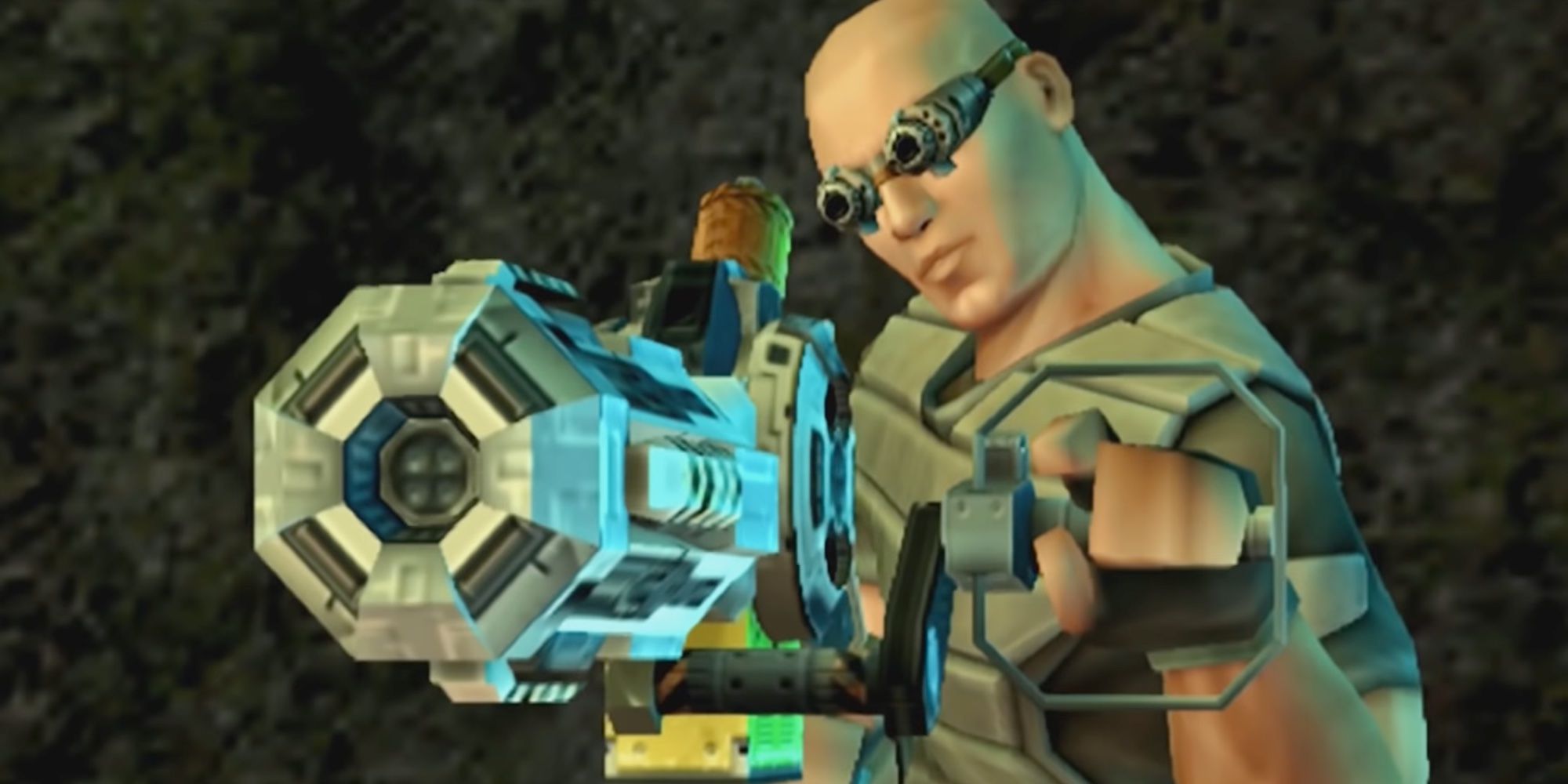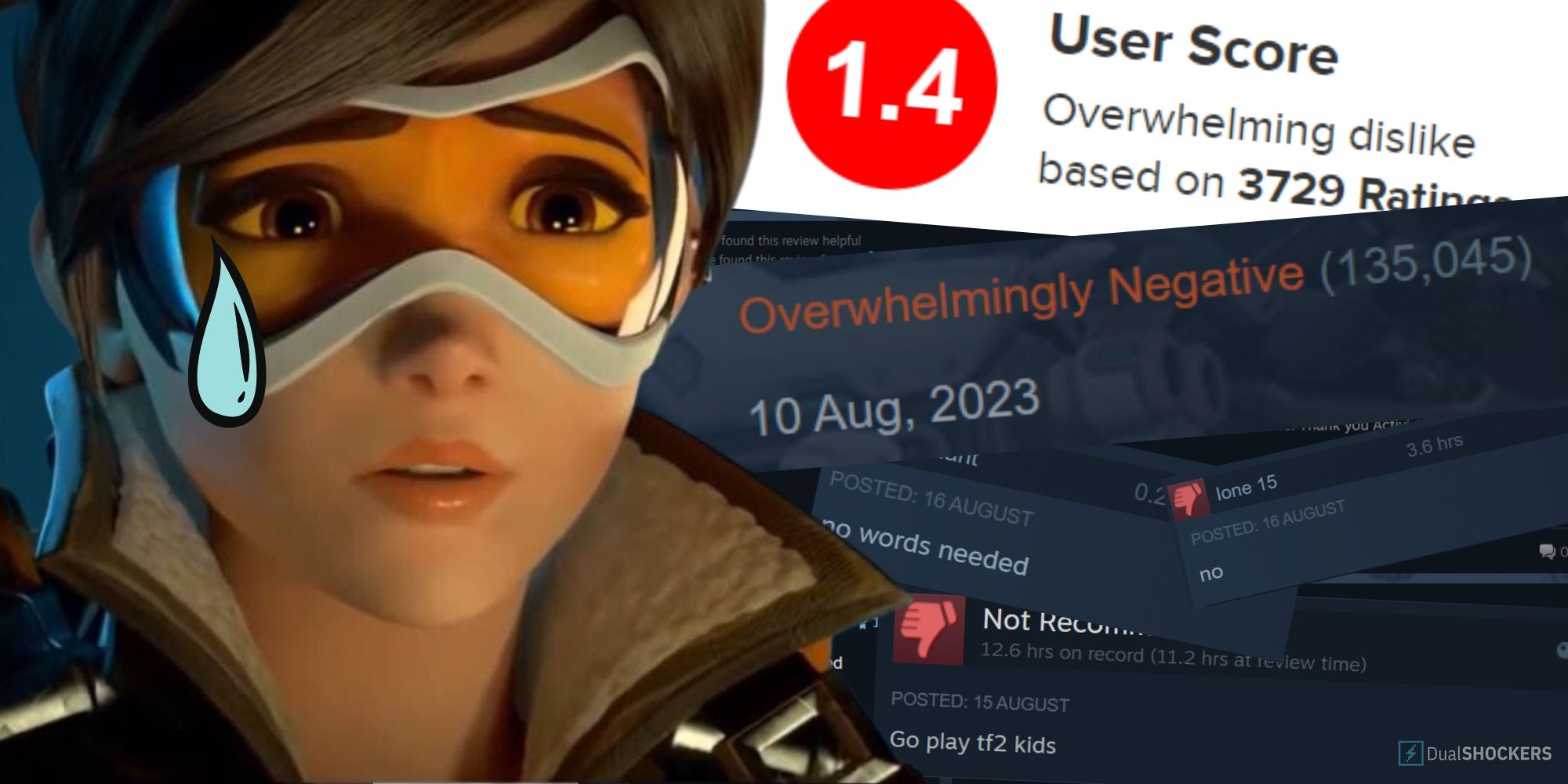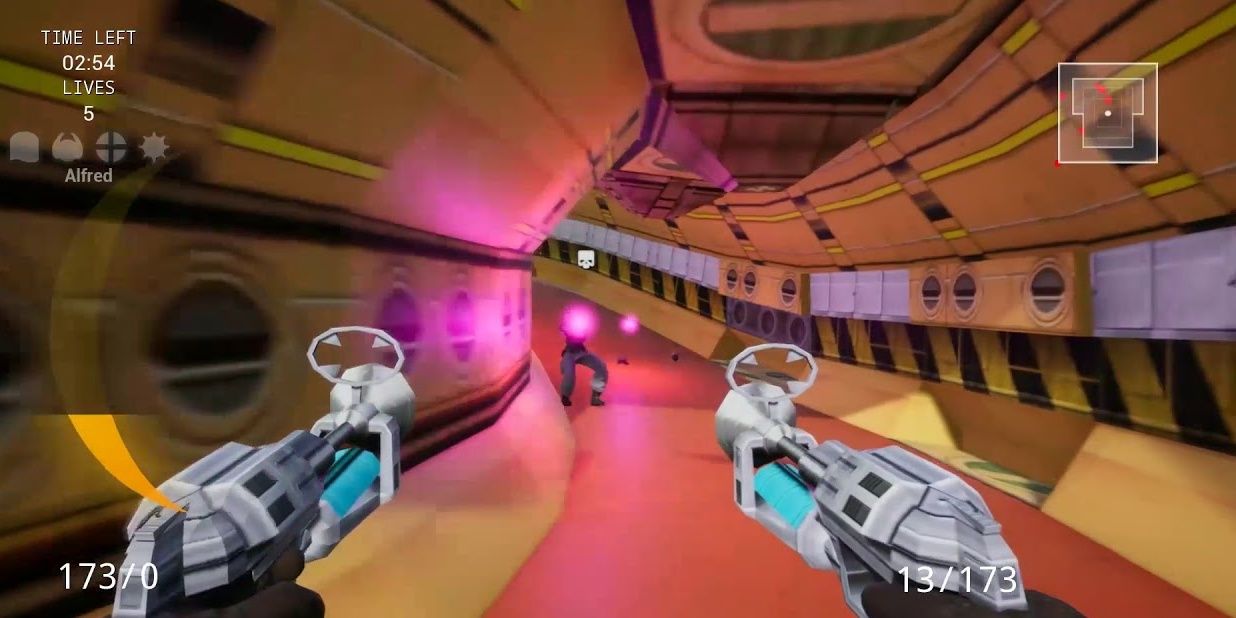Some of the best nights of my early teenage years were spent huddled around my Sony Trinitron TV—an unsolvable mass of PS2 controller cables weaving their way between four sweaty pairs of hands and the official Sony MultiTap plugged into my PS2—playing split-screen TimeSplitters 2. Along with Future Perfect, it’s to this day the best split-screen shooter experience I’ve ever had, with its ridiculous plethora of game modes, characterful maps, and I recall over 100 bonkers characters to choose from, each with their own small sets of stats to vary up play.
It looked for a sweet little while like the long-dormant series, whose last official appearance was back in 2005 with TimeSplitters: Future Perfect, might be making a comeback, with Deep Silver announcing in 2001 that it was getting the old Free Radical team back together (largely made up of Rare/Goldeneye 007 alumni, including ‘Dr’ David Doak) to finally finally release a new game in the series.
Time to Split (again)
But now, not for the first time, our hopes of this singular series being revived look on the verge of being dashed.
I’ve already declared Embracer Group, which owns Deep Silver and seemingly half the industry, as the worst thing to happen to gaming in 2023, and it now looks like they’re continuing their torrid run of studio closures and layoffs by targeting the recently re-assembled Free Radical for closure, according to a report by VGC.
Now, first of all, Embracer’s impact on the games industry has been a tragedy not only for gamers like yours truly who adore IPs like Thief, Deus Ex, TimeSplitters, Saints Row, and myriad other games created by now-closed or heavily trimmed studios, but also for the hundreds of people who continue to lose their jobs. Here’s hoping they find fresh work in what’s turning out to be a very rough industry to work in this year.
With that said, there is a wealthy publisher-slash-corporation out there who, for all their flaws, have proven to be quite adept at acquiring studios and actually running with them rather than shutting them down: it’s called Microsoft, and I’d argue that it could do with acquiring a game like TimeSplitters right about now.
First up: Microsoft is lacking a major multiplayer shooter at the moment. On that front, the company is basically living off of fond nostalgia for Halo, with the Master Chief Collection enjoying moderate numbers on Steam that are more less neck-and-neck with the series’ supposed flagship game, Halo Infinite. These games are doing fine, they’re serviceable, but they’re not a Fortnite or a Counter-Strike or an Apex Legends or a PUBG. In fact, they’re not even a Battlefield 2042 or a Hunt: Showdown numbers-wise.
Yes, Microsoft has successfully bought its way out of its problems with the Activision-Blizzard acquisition and the star prize of Call of Duty, but TimeSplitters would be ticking a different service shooter box; a box that’s being very tenuously filled by Overwatch 2 (another freshly acquired Acti-Blizz IP) for now.
With its bright, colourful characters, array of punchlines, and nice foundation of lore, TimeSplitters was something of an outlier at a time when first-person shooters gravitated towards grit and realism. There’s probably no better indication of the times than the fact that on PlayStation 3, Free Radical decided to make a disastrously bland military shooter called Haze instead of continuing with the cult-classic TimeSplitters. Haze’s failure left Free Radical in dire straits, which contributed to the studio’s original collapse back in 2009 (just as they were getting to work on the original TimeSplitters 4). Free Radical tried following a trend instead of keeping on with its beautiful thing, setting in motion TimeSplitters’ wavering path up to this day.
There are outdated elements of TimeSplitters, sure; the humour could use a modern makeover (much though I’m nostalgic for its procession of goofy one-liners and in-game commentator: “OPEN-HEAD SURGERY”), and it would also need to embrace modern game modes as well as (whisper it) a service-game economy. Yep, as much as I love the purism of fixed characters and split-screen deathmatches, TimeSplitters is a ripe IP to embellish with skins, ongoing character narratives, new character intros, and, well, pretty much all the things that the now Microsoft-owned Overwatch is known for.
The New Overwatch?
But Overwatch 2 is a struggling game right now. Its free-to-play model and economy is deeply unpopular, exacerbated by Acti-Blizz’s bizarre decision to shut down the original game after releasing the sequel. It was a disastrous move, and more or less nuked the goodwill and fandom the original game had built up over the years. Tonally, narratively, stylistically, TimeSplitters is an IP that could pick up the Overwatch 2 baton of ‘zany hero-led shooter’, and given the relatively small size of Free Radical, it could be a relatively cheap way of trying to get a new service game off the ground. Those of us who know TimeSplitters have a wealth of goodwill towards it, and the many that don’t know or remember, well, it’s basically a fresh start, isn’t it?
There’d be an interesting convergence here too, because Free Radical was originally formed by a group of alumni from Rare, which Microsoft now owns. Some of the stylistic and tonal lineage of these two studios can be seen in Sea of Thieves, which definitely has some of that TimeSplitters flavour to it, and could be a model for the latter to take inspo from.
Taking my PC-leaning hat off, Nintendo would probably be a good fit for the TimeSplitters IP too, but I wouldn’t want to see it sequestered away on the Switch or Switch 2. TimeSplitters feels like a long-cursed IP that, with some adjustments, could be a hit in today’s gaming landscape. In the meantime though, I still have my occasional split-screen games nights with Future Perfect to fall back on, up-rezzed to 4K widescreen via the miracle of emulation, and to me it hasn’t aged a day.
